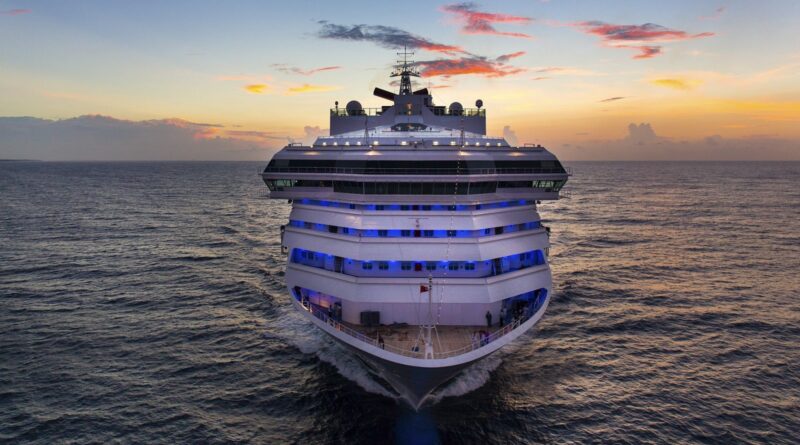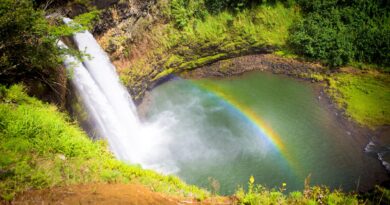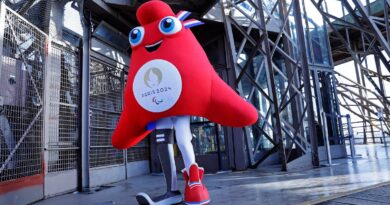The 8 classes of Carnival Cruise Line ships, explained – The Points Guy
Thinking about a cruise on a Carnival Cruise Line ship? You have a lot of options.
By the summer of 2024, Carnival will have 27 vessels in service — all currently available to book. That’s more ships than any other major cruise line except Royal Caribbean, which will have 28 vessels in service by the summer of 2024.
In general, Carnival ships are large but, aside from two exceptions, they’re not giants by today’s standards. Over the past two years, Carnival has begun operating its first two truly giant ships in years — the 181,808-ton, 5,282-passenger Mardi Gras and the 183,521-ton Carnival Celebration.
Other than these two ships, Carnival’s biggest vessel is the 4,090-passenger Carnival Venezia, which measures just 135,225 tons. That’s about 40% smaller than the biggest ships operated by Royal Caribbean.
For more cruise guides, news and tips, sign up for TPG’s cruise newsletter.
Six of the 27 vessels Carnival will operate by the summer of 2024 measure less than 100,000 tons, which makes them almost mid-size by today’s cruise ship standards.
This is a notable change for the brand from just a couple of decades ago. There was a time when Carnival operated some of the biggest cruise ships in the world. However, for many years, it has held back from following rivals such as Royal Caribbean and MSC Cruises in building ever-bigger ships. Mardi Gras and Carnival Celebration are now the only Carnival ships on the list of the world’s 50 biggest cruise vessels.
The arrival of Mardi Gras and Carnival Celebration has marked a major turning point for the line. The two vessels rank 15th and 13th, respectively, on the list of the world’s largest cruise ships — the first Carnival ships to crack the Top 20 in quite a few years. They are 35% bigger than the line’s next-biggest ship. One more ship in the series — Carnival Jubilee — will arrive in late 2023.
Related: A beginners guide to picking a cruise line
Sign up for our daily newsletter
The good news for those of you trying to get a handle on all the options within the Carnival fleet is that the line’s ships can easily be bunched into just eight groups of vessels that have similar amenities. If you know one member of the group, you know them all.
Each of these groups — known as “classes” in cruise industry lingo — is made up of ships that were constructed around the same time with the same basic design.
An introduction to Carnival Cruise Line ships
As mentioned above, Carnival’s ships can be broken down into eight distinct groups or classes. A key detail about Carnival ships is that there are a lot of similarities from class to class within the Carnival fleet.
Unlike Royal Caribbean and some other cruise lines, Carnival doesn’t always drastically change the design of its ships from class to class.
Related: The ultimate guide to Carnival Cruise Line
Instead, Carnival usually takes an incremental approach to design changes for its new classes of ships. You’ll find a lot in common between the Vista class and Dream class, for instance. These two classes aren’t all that different in feel from the earlier Splendor and Conquest classes of ships, though they are a bit bigger.
That said, Carnival is in the midst of a major change in its philosophy on ship design. Its new Excel-class vessels — which first debuted in 2021 with the arrival of Mardi Gras — are far bigger than its earlier ships. These ships also have a lot of new features and amenities (including the first-ever roller coaster on a cruise ship — and, no, we’re not making that up).
Related: The 4 new giants of the cruise world — and how to book them
For many years, Carnival steered clear of the big ship trends in the industry. Executives thought the ever-bigger vessels being deployed by such lines as Royal Caribbean and MSC Cruises were too big to make for an enjoyable cruise experience.
Now, Carnival is switching gears — no doubt because the giant ships unveiled by some other lines have been enormously popular with cruisers.
At Carnival, as at other lines, the biggest ships in the fleet have the most amenities, eateries, lounges, bars and deck-top attractions than the smaller ships. This can be a huge plus for travelers who like to have a lot of options when vacationing.
However, Carnival’s biggest ships also sail with more passengers, which can be a turnoff if you’re the kind of traveler who likes a more intimate experience.
In general, Carnival’s biggest and most amenity-packed ships are its newest ships. If you’re looking for a cruise experience with the most possible onboard activities and venues, you’ll want to steer toward the vessels in Carnival’s new Excel class and its relatively young Vista and Dream classes.
If cruising in a more intimate environment is your preference, you’ll want to look at some of Carnival’s older classes of ships including the Spirit and Fantasy classes.
The Carnival fleet is scheduled to grow over the next year with two more new vessels. As noted above, the line has ordered a third Excel-class ship (Carnival Jubilee) that will be ready to sail in December 2023.
In addition, the line will begin operating a ship currently in the fleet of its sister line Costa Cruises — Costa Firenze — in May 2024. It’ll be renamed Carnival Firenze and sail from Los Angeles.
Excel class
Ships in class: Mardi Gras (2021), Carnival Celebration (2022) and Carnival Jubilee (coming December 2023).
Size: 181,808 to 183,521 tons.
If you’re in the “bigger is better” camp when it comes to cruise ships, this is the Carnival class for you.
At a bit over 180,000 tons, Carnival’s three new Excel-class vessels — one of which, Carnival Jubilee, is still under construction — are 35% bigger than the line’s next-biggest ships and offer more eateries, lounges, bars and deck-top attractions than any other ships in the Carnival fleet by far.
Designed to take Carnival’s “fun ship” shtick to a new level, the ships are so big that, as noted above, they have room for roller coasters on their top decks — a cruise industry first. They also have a far broader array of suites than earlier Carnival vessels.
Among the new dining venues on the ships are the first Emeril Lagasse restaurant at sea, as well as the first Big Chicken eatery at sea. (Big Chicken is a chain created by basketball legend Shaquille O’Neal, who also serves as a Carnival spokesperson.)
Related: The 5 best destinations you can visit on a Carnival cruise
In addition to featuring a roller coaster, Mardi Gras was the first ship from a North America-based line designed to operate on liquefied natural gas. The fuel is touted as being cleaner than traditional ship fuel.
One caveat to keep in mind if you’re thinking of booking an Excel-class ship: They sail with a very large number of people. If being around crowds bothers you, these may not be the ships for you. The vessels are designed to hold a whopping 5,282 passengers at double occupancy. With every pullout sofa and pull-down bunk filled, they can hold up to 6,630 passengers.
Vista/Venezia class
Ships in class: Carnival Panorama (2019), Carnival Horizon (2018), Carnival Vista (2016), Carnival Venezia (2023) and Carnival Firenze (coming in 2024).
Size: 133,596 to 135,225 tons.
With the arrival of Mardi Gras and Carnival Celebration, the Vista-class and Venezia-class ships (so similar that we have combined them into one entry) are no longer the biggest and most amenity-packed ships in the Carnival fleet. Still, they offer a lot of options when it comes to eateries, bars, lounges and deck-top attractions — more than you’ll find on most other Carnival vessels.
All four vessels in the Vista and Venezia classes have water parks with waterslides on their top decks, as well as miniature golf courses, ropes courses and multiple pool areas. They’re also known for their pedal-powered, suspended-in-the-air SkyRide attractions.
Carnival Vista and Carnival Horizon, which officially are Vista-class ships, also have Imax theaters — the first in the cruise industry. Carnival Panorama, also a Vista-class ship, instead has the first trampoline park ever put on a cruise ship, in a partnership with Sky Zone.
There’s also a smorgasbord of restaurants, bars and lounges on all of the vessels. Among the many offerings on these ships are Carnival’s first breweries at sea (on all the vessels except Carnival Venezia, which is officially known as a Venezia-class ship and has a few notable differences).
On Carnival Panorama and Carnival Horizon, Guy’s Pig & Anchor Smokehouse | Brewhouse offers beer brewed on-site along with barbecue dishes designed by the Food Network’s Guy Fieri. On Carnival Vista, there’s a stand-alone brewery and a separate barbecue venue.
Other eateries on the ships include casual, Guy Fieri-designed Guy’s Burger Joint, Chipotle-like burrito spot BlueIguana Cantina (on Carnival Venezia, this is called Tomodoro and also serves a few Italian items), sushi outlets and steakhouses. Carnival Vista, Carnival Horizon and Carnival Panorama also feature Italian eatery Cucina Del Capitano, as well as JiJi Asian Kitchen, while Carnival Venezia has an Italian restaurant called Il Viaggio.
Carnival Horizon, Carnival Panorama and Carnival Venezia also have teppanyaki restaurants, and all four ships have dedicated chef’s tables located within their galleys.
Related: Everything to know about Carnival cabins and suites
Both the Vista-class and Venezia-class ships were built on the same basic design platform and are roughly the same size with similar layouts. But Carnival Venezia originally was built for Carnival’s Italy-based sister brand, Costa Cruises. As a result, it has a much stronger Italy theme and a few design differences. Still, enough is the same that for all practical purposes, it is a Vista-class ship in all but name. Hence our combining the two classes into one listing.
Related: Our thoughts after sailing on Carnival Venezia
The Vista-class ships were, notably, the first ships in the Carnival fleet to boast exclusive, keycard-restricted cabin areas — a trend that has been growing at many mass-market lines. There are two such areas on the three Vista-class ships: Havana Cabanas and Family Harbor, the latter of which is specifically geared toward families. Carnival Venezia has a keycard-restricted area called Terrazza Carnevale.
The water park area on Carnival Horizon is particularly alluring if you’re a Dr. Seuss fan. Unique among the water parks in the Carnival fleet, it has a Dr. Seuss theme. The water park area on Carnival Venezia also is notable as it has one more water slide than the water parks on the Vista-class ships.
All of these ships hold about 4,000 passengers each, based on double occupancy.
Note that one more Costa Cruises ship that is similar to Carnival Venezia (Costa Firenze) will be joining the Carnival fleet in 2024. It’ll be renamed Carnival Firenze.
Dream class
Ships in class: Carnival Breeze (2012), Carnival Magic (2011) and Carnival Dream (2009).
Size: 130,000 tons.
Carnival’s Dream-class ships are roughly the same size as its Vista-class ships, and the two classes have a lot in common. Still, there are a few key differences.
For starters, the Dream-class ships don’t have Imax theaters or trampoline parks. Both were innovations that debuted with the Vista-class ships. They also lack exclusive, keycard-restricted cabin areas and some of the eateries found on Vista-class ships.
Still, for the most part, if you’ve been on a Vista-class ship, you’ll immediately feel at home on a Dream-class ship.
Related: The ultimate guide to Carnival’s VIFP Club loyalty program
Dream-class ships share some of the same amenities as Vista-class ships. For instance, Carnival Dream and Carnival Magic both feature ropes courses on their top decks while Carnival Breeze has a 4D “thrill theater.” These innovations first debuted on Dream-class ships.
Dream-class ships also offer water parks with waterslides on their top decks, miniature golf courses, sports courts for basketball and volleyball, and multiple pools.
Interior venues on Dream-class ships include Punchliner comedy clubs, piano bars, casinos and showrooms for big production shows. The dining options are similar to what you’ll find on Vista-class ships; Guy’s Burger Joint, BlueIguana Cantina, steakhouses and the Italian eatery Cucina Del Capitano are included on all three vessels.
Two of the three ships — Carnival Breeze and Carnival Dream — also have sushi eateries, while Carnival Breeze and Carnival Magic have Carnival’s Caribbean-inspired watering hole, RedFrog Pub.
The ships in this class hold 3,646 to 3,690 passengers, based on double occupancy.
Splendor class
Ships in class: Carnival Splendor (2008).
Size: 113,300 tons.
Carnival Splendor is an outlier in the Carnival fleet — a ship that makes up a class all its own. That said, it has a lot in common with the ships of Carnival’s Conquest-class ships (see below).
Originally designed and ordered for Italy-based Costa Cruises — a sister brand to Carnival — the ship is actually a sister vessel to Costa’s four Concordia-class ships. It will be familiar to anyone who knows Carnival ships because the design of Costa’s Concordia class was based upon the design of Carnival’s Conquest class, and the two classes are very similar.
The main difference between Carnival Splendor and its Conquest-class cousins is that the former has an enlarged and redesigned top deck area. The structure around the main pool of the ship is noticeably different, with a retractable, sliding glass roof that you won’t find on the Conquest-class ships, as well as a water play area for kids. The ship also has a bigger spa area.
Other than that, though, Carnival Splendor is basically a variation of the Conquest-class ships. Size-wise, it’s just a few thousand tons bigger. It holds 3,012 passengers, based on double occupancy.
Conquest class
Ships in class: Carnival Freedom (2007), Carnival Liberty (2005), Carnival Valor (2004), Carnival Glory (2003) and Carnival Conquest (2002).
Size: 110,000 tons.
At 111,000 tons, the Conquest-class ships (and Carnival Splendor, noted above) are about 20% smaller than the newer Vista-class and Dream-class ships. As a result, they have somewhat fewer amenities.
Still, you’ll find a lot of the classic Carnival “fun ship” attractions on these vessels including water play areas with waterslides, miniature golf courses and adults-only Serenity deck-top retreat areas.
You’ll also find a solid array of eateries on each of the ships including a Guy’s Burger Joint, BlueIguana Cantina burrito outlets and steakhouses.
In addition to being smaller than Vista-class and Dream-class ships, Conquest-class ships also sail with fewer passengers. All of the Conquest-class vessels hold just shy of 3,000 passengers at double occupancy — about 1,000 fewer passengers than the Vista-class ships.
That’s a noticeable difference if you’re the kind of vacationer who doesn’t like to be around giant crowds. For some Carnival fans, the smaller size of the Conquest class and Splendor class makes these ships appealing. Others prefer the added amenities that come with the bigger ships.
Spirit class
Ships in class: Carnival Miracle (2004), Carnival Legend (2002), Carnival Pride (2002), Carnival Spirit (2001) and Carnival Luminosa (2009).
Size: 88,500 tons.
Carnival Spirit-class ships are the adventurers of the Carnival fleet.
The vessels are built for “all-weather” cruising, with pools that can be covered by retractable domes when it’s cold and stormy. These are the ships that sail in places such as Alaska, where even in the summer it can be too chilly for sunning on an open pool deck.
These are also the ships that Carnival uses for winter sailings to the Caribbean from Baltimore, which can involve a day or two of cold and stormy sailing in the Atlantic.
In some recent years, Carnival has also deployed one of its Spirit-class ships across the Pacific to Australia — the most far-flung destination that it offers on its schedule.
In addition to having a weather-proof main pool area, the Spirit-class ships are great for far-flung destinations because of their relatively small size, which allows them to access smaller ports. At just 88,500 tons, they’re among the smallest ships in the Carnival fleet — less than half the size of Carnival’s new Excel-class vessels.
The Spirit-class ships are notably lower and sleeker than most other vessels in the Carnival fleet. Passing under relatively small bridges is not a problem for them. Unlike a lot of recently built cruise vessels, they also are thin enough in the middle that they can squeeze through the old locks of the Panama Canal.
The Spirit-class vessels also boast the largest percentage of balcony cabins and oceanview cabins in the Carnival fleet, which makes them perfect for a destination such as Alaska where being able to watch the scenery from your cabin is a big plus.
They’re also relatively intimate ships, holding just 2,124 passengers at double occupancy. By modern-day cruise ship standards, that makes them “mid-size” vessels.
Still, you can expect to find many of the same fun-focused features on Spirit-class ships that you’ll find on the line’s bigger vessels, including water parks with waterslides and miniature golf courses.
Spirit-class ships also have one of the most unique features in all of the cruising industry — special date-night restaurants that are incorporated into their funnels and feature translucent glass-dome ceilings.
Note that one of the Spirit-class ships, Carnival Luminosa, was originally built for Costa Cruises, a sister line to Carnival (it originally sailed under the name Costa Luminosa). The vessel was built to the same basic specifications as the four Spirit-class vessels built for Carnival in this class, although it is a tad bigger and can hold a few more passengers. It dates to 2009.
Sunshine class
Ships in class: Carnival Radiance (2000/2021), Carnival Sunrise (1999/2019) and Carnival Sunshine (1996/2013).
Size: 102,000 tons.
The Sunshine class (once known as the Destiny class) may be the most unusual class of ships in the Carnival fleet. On paper, the ships in this class are among the oldest vessels that Carnival operates. However, you also can make an argument that they are among the newest vessels in the line.
This is because each of the ships in this series has been almost completely gutted and rebuilt from the waterline up.
The makeovers of the ships, which began in 2013, were so thorough that Carnival has given each of the vessels a new name. Carnival Sunshine is what old-time Carnival fans will remember as Carnival Destiny. Carnival Sunrise is the former Carnival Triumph. Carnival Radiance is the ship that began life as Carnival Victory.
Carnival spent $200 million alone in 2019 overhauling Carnival Sunrise. In addition to sprucing up just about every space on the ship, the money was used to add classic Carnival attractions that the ship lacked. This included a full-blown water park, which replaced a single waterslide on one of its top decks.
Carnival Sunrise also received a SportSquare area on its top deck like the ones found on newer Carnival vessels. It has a ropes course, basketball court, miniature golf course, outdoor pool and ping-pong tables. Carnival didn’t end the deck-top changes there. It also found space for another signature Carnival offering that had been lacking: an adults-only Serenity outdoor lounge area with padded loungers, daybeds, a hot tub and a full bar.
In addition, Carnival Sunrise now has half a dozen new food and beverage venues including a version of Carnival’s signature steakhouse, Fahrenheit 555; Carnival’s signature Italian eatery, Cucina Del Capitano; and a Bonsai Express sushi outlet.
Related: Our take on Carnival’s revamped Carnival Sunrise
The overhaul of Carnival Sunshine, which took place in 2013, brought similar changes, as well as a complete renovation of the ship’s pool area that incorporated a multideck waterfall.
Carnival Radiance, for its part, just emerged from its long-scheduled overhaul, which was delayed in late 2021 by the COVID-19 pandemic.
Note that even after the makeovers, the ships still don’t have all the bells and whistles of Carnival’s truly new ships, such as Carnival Panorama. As noted above, Carnival’s newest ships are bigger than its older ships, allowing for more attractions, restaurants and lounges.
At around 102,000 tons, the Sunshine-class ships are more than 20% smaller than Carnival Panorama and more than 40% smaller than Mardi Gras and Carnival Celebration.
The ships hold from 2,984 to 3,002 passengers, based on double occupancy.
Interestingly, these weren’t always considered smaller vessels. In fact, when the line first unveiled Carnival Sunshine in 1996 (back when it was called Carnival Destiny), it was the biggest cruise ship in the world. It also was the first cruise ship to surpass 100,000 tons.
Now, it doesn’t even crack the list of the 50 biggest cruise vessels.
Fantasy class
Ships in class: Carnival Paradise (1998) and Carnival Elation (1998).
Size: 70,000 tons.
Built in the 1990s, the Fantasy-class ships are Carnival’s oldest and smallest ships, and the line is in the process of phasing them out. Going into 2020, the line had eight of these vessels. It removed four of them from its fleet soon after the COVID-19 pandemic began, and this year it removed two more — Carnival Sensation and Carnival Ecstasy.
The two Fantasy-class ships that are left are mostly used in secondary ports — such as Jacksonville, Florida, and Mobile, Alabama — that might not be able to support bigger vessels.
Related: Why I’m sad to see Carnival retiree its smallest ship
While still much-beloved by Carnival fans, in part for their intimate size, these ships notably lack a large number of balcony cabins — the cabin type that everyone wants these days. Most of the cabins on these ships are ocean-view cabins that only offer a window or a porthole, or windowless inside cabins.
That said, the two remaining Fantasy-class ships have undergone renovations over the years to add more balcony cabins. Depending on the ship, there were between 98 and 150 new balconies added, including new suites.
The ships have relatively fewer amenities and venues than the newer and bigger Carnival ships. You won’t find giant water parks on these vessels as you would on newer Carnival ships. You will find multiple slides and a spray park for the kids, though. The dining options are also limited.
Still, for a lot of Carnival fans, these are fun ships.
Two vessels each hold around 2,100 passengers, based on double occupancy.
Bottom line
Carnival has quite a few different classes of ships, but the differences between many of them aren’t as big as the differences between classes at other lines.
You’ll find a lot of consistency from ship to ship in the Carnival fleet in the type of venues that you find on board. In recent years, Carnival has spent $2 billion overhauling many of its ships to create that consistency in onboard venues and amenities.
Vacationers looking for a big resort experience with a lot of options should choose one of Carnival’s newest ships, which are bigger and have more amenities. If you’re looking for more intimacy on a cruise ship, some of the older classes of ships, such as those in the Spirit class, might be just right.
Planning a cruise? Start with these stories:




